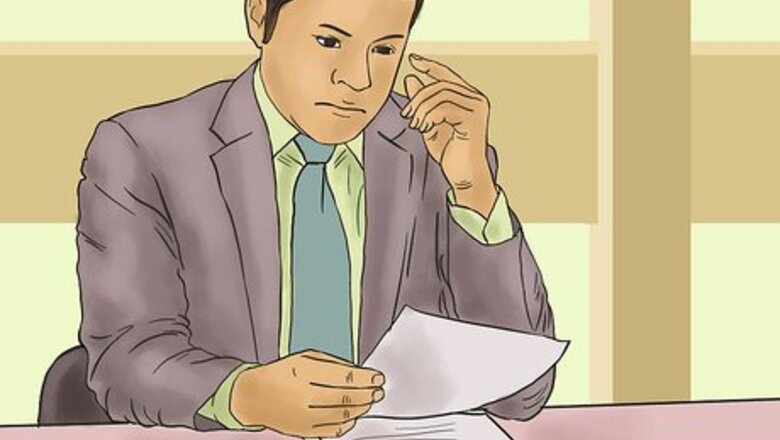
views
Preparing to End the Contract

Check if you can end the contract mutually. Both sides can agree to end a contract, even if the contract has not yet expired. However, both sides must agree. If you want to end the athletic official contract, then you could start by asking the other side if they agree to terminate your agreement. You should write a letter and ask. Give your reasons for wanting to end the contract early. Send your letter certified mail, return receipt requested so that you will know that it was received. Don’t be surprised if the other side does not agree to let you out of the contract. In that situation, you will need to find a reason to end the contract on your own.
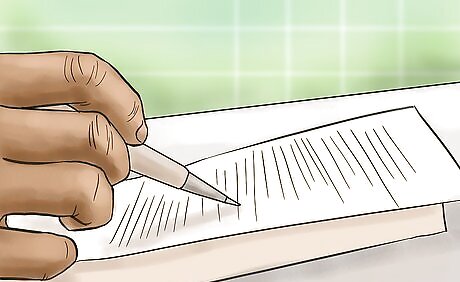
Read your copy of the athletic official contract. Find the contract. The contract serves as the formal agreement between you and the other party. Go through your filing cabinets and papers and find the contract. Call the other side and ask for a copy of the contract if you can’t find yours. Look for the expiration date. If the contract is about to expire, then you might want to wait. After the contract expires, you can choose not to renew it.
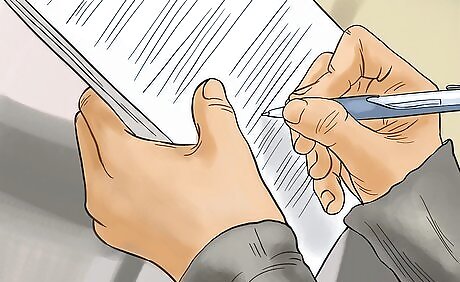
Find the termination provision in the contract. Your contract should contain information about how the contract can be terminated. For example, if either side doesn’t fulfill its obligations, then the contract can usually be ended. Look for a termination provision. A sample termination provision in an athletic official contract might state: “If either party hereto fails to fulfill the obligation of any part of the contract, that party shall pay to the other party a sum equal to the contracted gross fee less mileage allowances as damages, the remainder of the contract shall not be binding, and the breach of contract shall be reported to the Association.”
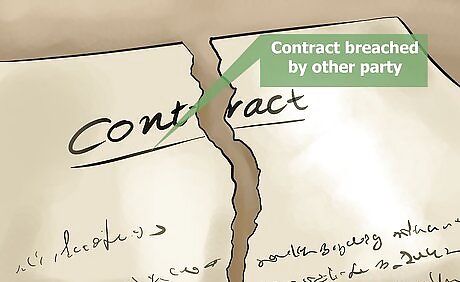
Find the other party’s obligations. You can end the contract on your own if the other party “breached” it, which means the other side did not fulfill its obligations. You should find the other party’s obligations by reading the contract. In the standard athletic official contract, officials agree to be at the assigned game and to officiate. If the official does not show up to officiate, then he or she has breached the contract. In return, the school or sports league agrees to pay a fee for the official’s work. If the school has refused to pay, then it also has breached the contract.
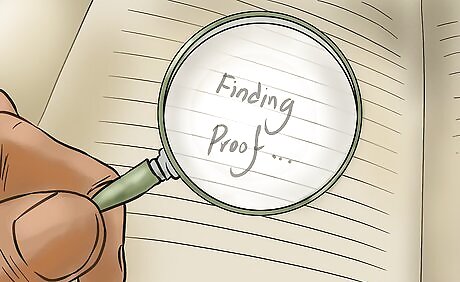
Gather proof of the breach of contract. This evidence will be important if you go to court later on. You need to be able to show a judge that you didn’t end the contract because you didn’t want to pay the official money or because you didn’t want to officiate anymore. Instead, you need to show that the other side didn’t live up to its end of the bargain. As you gather evidence of the breach, look for the following: Letters or emails sent to the official if he or she didn’t show up to officiate. You want a paper trail. You can also get witness names and statements to the effect that the official never showed up. Any letters or emails sent to the school asking why you haven’t been paid. Any written admission that one side will refuse to perform its obligations. For example, an official might email you stating that they quit. This type of admission is a breach of the contract.

Discuss your case with an attorney. You will benefit from meeting with a lawyer to discuss your options. A qualified attorney can listen to your case and explain what will likely happen if you move to end the contract on your own. To find an attorney, you should call your local or state bar association. They often provide referrals to attorneys. After you get a referral, you can call the lawyer and schedule a half hour consultation. Ask how much the consultation costs. Some lawyers will offer them for free while others will charge a small fee. At the consultation, be sure to talk about whether the other side’s breach is serious enough to end the contract. A breach must be “material” for you to terminate the agreement. For example, if an official showed up to a game five minutes late, you might not have grounds to end the contract because the breach was not serious. Think about hiring the lawyer to represent you. Ask how much he or she charges. If your case goes to trial, then you will want a lawyer’s help.
Drafting a Breach of Contract Notice
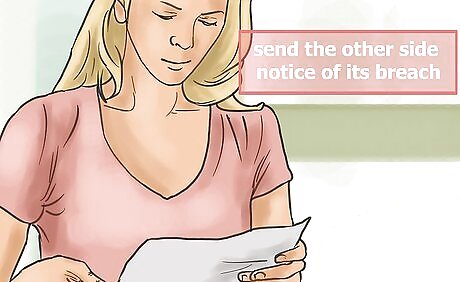
Set up your breach of contract notice. If you can’t get out of the contract by mutual agreement, you will need to send the other side notice of its breach. The purpose of the letter is to put the other side on notice that it has breached the contract. Either you or your lawyer can draft it. Set up the letter like a standard business letter. Use your letterhead if you have it. Set the font to a comfortable style and size. You want the letter to be readable. Include the date at the top of the letter. The date is critical. You want to be able to show a judge that the other side had notice of its breach and when it received notice.

Tell the other side how it breached the contract. Mention specifically what the other side agreed to do and how it failed to fulfill its obligations. Quote the relevant contract provisions. You also might think about including a copy of the athletic official contract with your breach of contract notice.
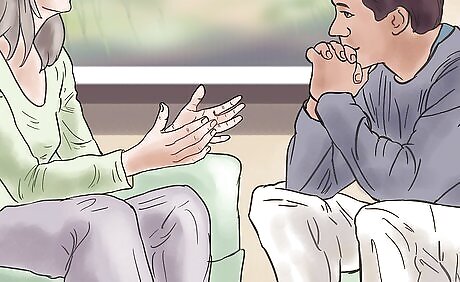
Propose a resolution to the dispute. In your breach of contract notice, you should tell the other side how it can “cure” the breach. For example, you might want to give the school or athletic association a set amount of time to give you payment that you are owed. The contract might state that any breach results in the contract being terminated. However, you could propose that you continue on with the contract if the other side resolves the dispute to your satisfaction. The contract also might state how much time the other side has to cure. Typically, you are given 30 days. If there is a time stated in the contract, then remind the other side. You also might want to simply end the contract without letting the other side cure. For example, if an official has missed three straight games, you might want to simply end the contract. In your breach of contract notice, you should state, “We are ending our contract with you immediately.”
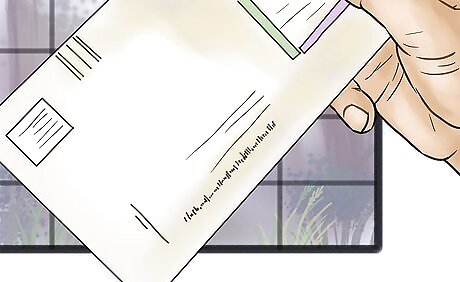
Send the notice to the other party. Generally, you can send the notice certified mail, return receipt requested. However, your contract might state the delivery method for notifying the other party of a breach. Make sure you follow the method agreed to in the contract. The other side could claim that it didn’t receive proper notice if you send it a different way.
Negotiating with the Other Side
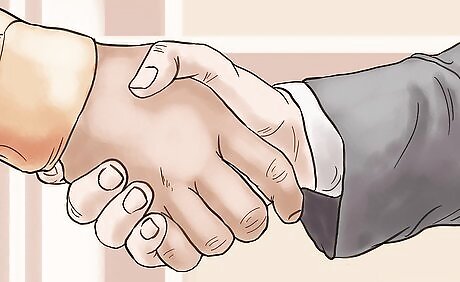
Agree to negotiate. The other side might contact you after it receives your breach of contract notice. He or she may propose negotiating a resolution to your disagreement. If there is a lot of money at stake, then you should give serious thought to negotiating. There are several benefits to negotiating a disagreement instead of going to court. For example, negotiation is often faster and less expensive than a lawsuit. You can also preserve the business relationship. For example, you might want to do business with the school or official in the future. By avoiding a trial, you can avoid burning your bridges.

Come up with your negotiations strategy. You don’t want to walk into negotiations blind. Instead, you should think about what you want out of negotiations. You will need to analyze the strength of your case and how much you are willing to accept to settle. These factors will influence your approach to negotiations. Identify your best alternative to negotiation. For example, your best alternative might be to end the contract and wait to be sued. If you have a strong case, then you can probably win the lawsuit. Because you have a solid best alternative, you can be more aggressive in your negotiations. Decide on the minimum you will accept. Your baseline for negotiations is your “walkaway” point. This is the minimum you will accept, otherwise you leave negotiations. If your best alternative to negotiation is attractive, then your baseline can be higher. For example, if the sports team has not paid you for three games, you might insist on ending the contract and getting all money owed to you.

Negotiate with the other side. Negotiations will probably take place at a lawyer’s office. If neither party has a lawyer, then you could meet in a public library. Your lawyer (if you have one) should do most of the talking. However, you should share your input. Ethically, your lawyer can’t accept a settlement offer without your permission. Always stay calm and listen to what the other side has to say during negotiations. By showing that you are listening, you help build trust with the other side. They will realize that you are negotiating in good faith. Also avoid settling too fast. The other side expects you to negotiate. You could get a better deal if you continue negotiating instead of folding early.

Participate in mediation instead. With mediation, you and the other side meet with the mediator, who is a neutral third party. Mediation is a good option if you do not have a lawyer since the mediator can help guide discussion. The mediator is not a judge and does not pick a “winner.” Instead, he or she tries to get all sides to come to an agreement that is mutually beneficial. The mediator will help you listen to each other and find areas of agreement. Mediation isn’t free. Mediators typically cost $200-800 an hour. However, mediation is usually cheaper than going to trial. To find a mediator, you can call your local courthouse, which may run a mediation program or maintain a list of mediators. You should also call your local or state bar association, which might be able to provide a referral.
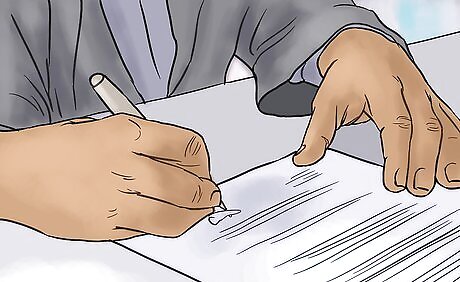
Write up a settlement agreement. If you reach an agreement, then you need to draft a settlement agreement which will replace your current contract. Both sides should sign it. Your lawyer or the mediator can help you draft it. You should draft and sign a “mutual rescission agreement” if you both agree to end the contract. This agreement formally terminates the contract. Also draft a “waiver and release.” This waiver will serve as an agreement not to bring a lawsuit for your contract dispute.
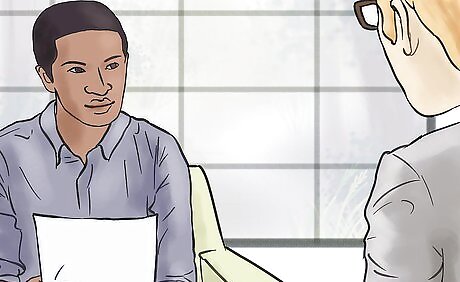
Defend yourself in a trial. Your mediation or negotiations might not have been successful. If not, then the other side faces a choice: let you end the contract or sue you. If the other side decides to sue, then you will receive a copy of the complaint for breach of contract. The complaint will describe the dispute and state what the other side wants from the judge (usually money). Hire a lawyer if you are sued for a considerable amount of money. It can be very difficult to learn trial procedures on your own. A qualified attorney would be invaluable. However, you might be sued in small claims court, since very little money might be at stake. In this situation, you could represent yourself. Small claims court is designed so that participants do not need lawyers. Talk with your school principal or school board to check if you still want to go ahead with using a lawyer. For more information about what happens during a trial for breach of contract, see Defend Yourself in a Breach of Contract Lawsuit.




















Comments
0 comment